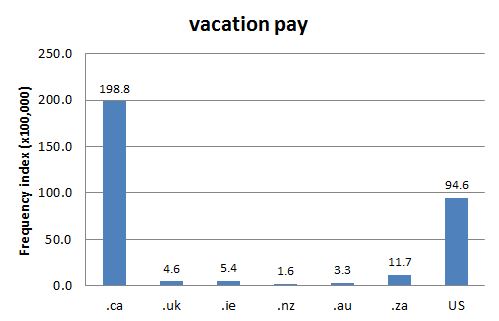DCHP-2
vacation pay DCHP-2 (November 2016)
n. — Administration
money to be paid to an employee yearly during time off work, or to be collected in lieu of time off.
Type: 5. Frequency — Employers are required by federal law to provide employees with vacation pay, which amounts to four to six percent of gross earnings in a given year, depending on whether the employee is entitled to two or three weeks of vacation time (see Labour Program Canada reference). Although the term is in widespread use in the US, internet searches indicate that it is most prevalent in Canada (see Chart 1).
See also COD-2, s.v. "vacation pay", which is marked "Cdn".References:
- COD-2
- Labour Program Canada "Annual Vacations" Accessed 22 Aug. 2013
Images:
Chart 1: Internet Domain Search, 16 Oct. 2012
